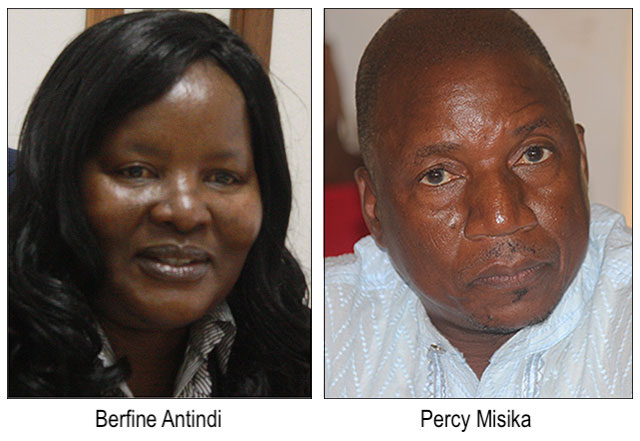SENIOR ministry of agriculture officials have questioned why the government bought various agricultural products that were not needed or requested.
These details are contained in a letter leaked to yesterday which exposes the extent to which officials at the agriculture ministry’s headquarters are buying goods and products for regional centres without any requisitions.
One of the officials asking questions is the deputy director for the north-eastern division in the agriculture ministry, Berfine Antindi. She wrote this in a 26 July 2019 letter seen by .
Antindi declined to comment when approached for comment yesterday, saying she does not discuss internal matters in the media.
This comes at a time the Anti-Corruption Commission is probing a tender in which equipment worth N$100 million was purchased by the ministry when there was no need for it.
It now turns out that a Zimbabwean company – to the surprise of officials in the north-eastern regions – delivered animal drawn rippers and cowpea seeds at the regional offices last year.
understands that the items are gathering dust at the regional agriculture offices because there is no use for them in the regions.
Antindi wrote to the ministry’s executive director, Percy Misika, this year, saying the items that were delivered to their division include square tines, straight tines, animal drawn planters and cowpea seeds.
She emphasised that the seeds and equipment had not been requisitioned.
“The north-eastern region did not request the cowpea seed or those tines but they happen to be delivered in the division,” she said.
Antindi said Zambezi received a tonne of cowpea seed during the 2017/2018 planting season and only sold one 50kg bag.
She said around 19 50kgs were still in stock.
The cost of these products are not known at this stage but the tines are said to have cost N$1,5million.
“The division did not order the above mentioned cowpea seeds at all. Farmers in the division are not interested in these types of cowpea seeds,” she said.
Antindi said each region – Kavango East and West and Zambezi – received 250 square tines and 250 straight tines.
Kavango East also got an animal-drawn planter.
Further, she said, each region received cowpea seeds. Kavango East received 2,36 tonnes, Kavango West, 2,2 tonnes and Zambezi, 3,5 tonnes.
Antindi added that the tines were delivered in May 2018 “without any communication as to who ordered them”.
Antindi requested Misika to help seek approval from treasury to get the price and authorisation to sell the tines to farmers who might be interested in them.
She said the regions can keep 225 of the 750 tines delivered there, adding that the rest “must be taken out of our regions as soon as possible as we did not order them”.
Antindi said the north-eastern offices are hesitant to keep the tines because the farmers might not buy them.
She also showed that the three regions will also just keep 3,3 tonnes of the delivered 8 tonnes of cowpea seeds.
“Please be reminded that the above-mentioned items were delivered at directorate of agricultural production extension and engineering services offices in the regions directly without going through regional stores as per procedure,” she said.
Antindi warned that “in future we must all ensure that any items procured should be authorised through government procedures,” she said.
Misika yesterday disputed Antindi’s version, saying the regions are aware of the items.
“This is a GIZ project and the procured items will be used for the coming cropping season. She is a member of the steering committee, so I do not understand how she is not aware of this,” he said.
The official told that the ripper tines acquired by GIZ had nothing to do with the ripper tines in question, which remain unused.
The official added that between 2015 and 2019, the GIZ project bought 339 Magoya rippers from Zimbabwe and 215 locally manufactured rippers. The GIZ project is benefiting over 300 farmers, research cluster farmers and its research stations in the Kavango West, East and Zambezi regions.
The conservation agriculture project is aimed at finding sustainable ways of ploughing that will cause minimum soil erosion.
Stay informed with The Namibian – your source for credible journalism. Get in-depth reporting and opinions for
only N$85 a month. Invest in journalism, invest in democracy –
Subscribe Now!





